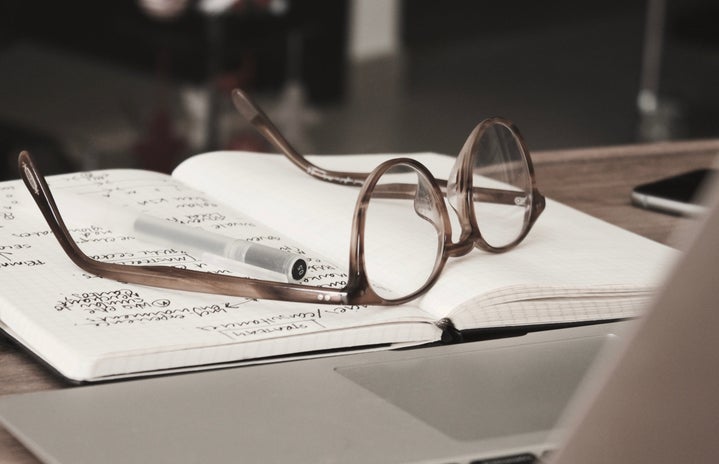Since my first Zoom class, I was under the impression that the lack of in-person experiences was responsible for my rapidly declining attention span and energy. I’m usually the type that sits at the front of the class and asks questions. For some reason, I couldn’t help but let out a sigh of relief as soon as I left every Zoom class I attended. As the semesters went by, I became increasingly distracted and began to develop headaches. I chalked it up to just being related to adjusting to online school, but over time things got worse. This semester, it finally clicked that it wasn’t the hours of classes or homework that were draining me—it was the hours of screens.
I noticed that on my longest days of classes and organization meetings, not only was I fatigued, but my eyes also were bloodshot, and I went to bed with a headache. I realized I had to find a solution because I started to sleep in late to sleep off the eye strain. Reducing my screen time would have been a simple solution in the past. But since staring at a screen for hours a day is now an obligation to get an education, I searched for other solutions.

A quick google search yielded this super affordable three-pack of blue light glasses on Amazon. Not only are they less than $5 a pair, but you can also choose the colors and prints of your set. The brand sells everything from classics to floral prints and black to pink ombre. If you’re more serious about the style of your frames, check out hundreds of different styles at companies like Zenni, EyeBuyDirect and WarbyParker.
Blue light glasses are the cutest easy fix for eye strain problems. These frames eliminate all blue light from your visual field that irritates and harms your eyes. Changing the temperature setting on my laptop was an option, but I wanted an extra layer of protection. With blue light glasses, you are protected from all blue light that comes from your devices, lighting and TVs. Not only are these glasses practical for an online school, but they may help you fall asleep faster if you wear them for an hour or two before bed. Blue light can be helpful during the day to provide a boost of energy, but Harvard recommends avoiding looking at blue light at night to prevent changes in circadian rhythms and melatonin levels.
I was skeptical at first about how effective the glasses are, but I was amazed after wearing them for a few hours. I felt more energized, productive and attentive. By the end of the day, my surging headache, red eyes and fatigue were finally gone. Eye strain is already common, so it is no doubt that attending online school is bound to negatively impact the longevity of prime eyesight. According to a 2016 survey by the Vision Council, 73% of adults younger than 30 were experiencing digital eye strain. If you think you may be apart of that 73%, try out a pair of blue light glasses to make your online college experience a little bit easier!



